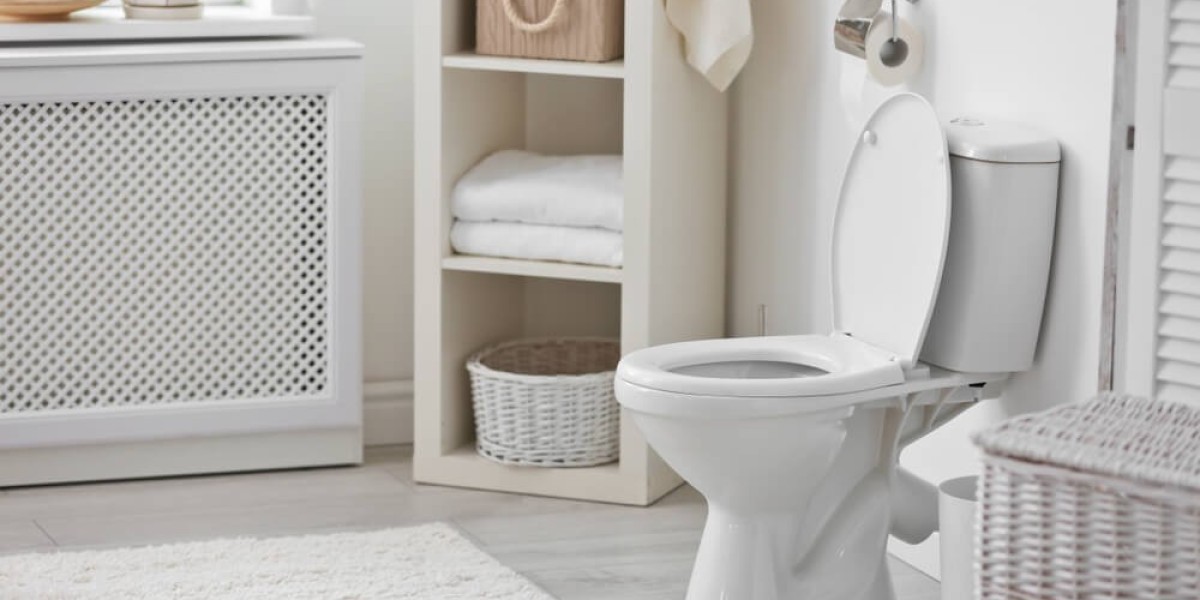In recent times, residents and businesses in Clacton-on-Sea have noticed an increasing number of issues with blocked toilets. This phenomenon may seem surprising at first, but a combination of factors is contributing to this trend. In this blog, we will explore the possible reasons behind the growing problem of blocked toilets, investigate the local infrastructure challenges, and suggest practical tips to help mitigate these issues. Whether you’re a homeowner, a business owner, or simply a concerned resident, understanding the root causes can empower you to take the right steps to prevent blockages and maintain a smoothly running plumbing system.
Understanding the Problem
Blocked toilets are not just an inconvenience; they can also be a sign of deeper issues within the plumbing system or the broader sewage infrastructure. Blockages can lead to overflowing toilets, unpleasant odours, and even health hazards if left unattended. In Clacton, several factors have converged to make blocked toilets a more common issue. By taking a closer look at these factors, we can better understand the problem and work towards long-term solutions.
Aging Infrastructure and Maintenance Challenges
One of the primary reasons for the increase in blocked toilets in Clacton is the aging infrastructure. Many buildings in the area, particularly those constructed decades ago, were built with plumbing systems that are now outdated. These older systems often struggle to cope with modern usage patterns and the various materials that can cause blockages.
Outdated Pipework: Old pipes may have a build-up of scale and debris over time, narrowing the passageway for waste and water. This build-up can trap materials that eventually lead to clogs.
Inadequate Design: In some cases, the original plumbing designs were not built to handle the volume or type of waste produced by today’s households. As a result, even minor blockages can escalate quickly.
Delayed Maintenance: Routine maintenance is essential for keeping plumbing systems clear. However, budget constraints and competing priorities mean that maintenance is often postponed until problems become severe.
Changing Consumer Habits and Modern Products
Modern lifestyles have also played a role in the increase in toilet blockages. The types of products that people use in their homes today are very different from those used decades ago. Some modern products can lead to unexpected issues in the plumbing system.
Toilet Paper and Flushing Practices: The quality of toilet paper and the way it is used can have a significant impact on plumbing. Thicker, more absorbent papers, while popular for their comfort, may not break down as quickly in the sewer system as older, more fragile paper. When flushed in large quantities, even biodegradable paper can accumulate and cause blockages.
Non-Flushable Items: Items that should not be flushed, such as sanitary products, wipes, and even certain chemicals, have become more common. Many of these products do not disintegrate in water and can quickly clog pipes. Despite increased awareness, a surprising number of people still flush items that are not designed to be flushed.
Water Efficiency Fixtures: The drive for water conservation has led to the installation of low-flow toilets. While these fixtures are excellent for reducing water usage, they sometimes lack the flushing power necessary to clear waste effectively, particularly when blockages start to form.
Environmental Factors and Local Conditions
Local environmental conditions in Clacton also contribute to plumbing issues. The town’s coastal location means that its infrastructure is uniquely challenged by both natural and man-made factors.
Soil and Ground Conditions: The type of soil and ground conditions in Clacton can affect the stability of the underground pipes. Shifts in the soil or ground movements, even minor ones, can create slight misalignments in the pipes. These misalignments may not immediately cause a blockage but can lead to weak spots where blockages eventually form.
Salt and Corrosion: Being a seaside town, Clacton is more prone to the effects of salt and moisture. Salt can be corrosive, and over time, it can damage metal pipes or accelerate the degradation of other materials. This deterioration can lead to leaks or blockages as fragments break off and obstruct the flow of water.
Weather Extremes: Recent years have seen more extreme weather patterns, with heavy rains and occasional flooding stressing the local sewage system. When the system is overwhelmed, blockages can become more frequent as waste and debris are forced into pipes that are already partially obstructed.
Increased Demand and Usage Patterns
The population and tourism in Clacton have grown over the years, leading to increased usage of local plumbing and sewage systems. More people means more waste, and sometimes, the infrastructure is simply not designed to handle the load.
Seasonal Surges: During the tourist season, the demand on public and private facilities spikes dramatically. Hotels, restaurants, and public restrooms often see higher usage rates, which can quickly overwhelm systems that are already vulnerable.
Population Growth: A gradual increase in the local population can put a steady strain on older systems. If infrastructure improvements do not keep pace with population growth, blockages and other issues are likely to become more common.
Commercial vs. Residential Demand: Businesses may also face unique challenges compared to residential properties. Commercial properties often have more robust systems to cope with higher usage, but if those systems are not regularly inspected and maintained, blockages can still occur.
The Impact of Blocked Toilets on the Community
Blocked toilets can disrupt daily life in many ways, from the inconvenience of a household emergency to more serious implications for public health and sanitation. In areas with high tourist traffic like Clacton, the impacts can extend beyond the local community.
Health and Safety Concerns
One of the most pressing issues associated with blocked toilets is the potential risk to health. Overflowing toilets can become breeding grounds for bacteria and viruses, posing a risk to both residents and visitors.
Hygiene Risks: When toilets are blocked, sewage can back up into homes or public spaces. This situation not only creates unpleasant odours but also increases the risk of spreading diseases.
Emergency Situations: In some cases, a blocked toilet can lead to emergency calls and require immediate intervention from plumbing professionals. For vulnerable populations, such as the elderly or those with limited mobility, these issues can become serious health hazards.
Community Impact: Public buildings and tourist attractions that experience plumbing issues may need to close temporarily, affecting both local business and the reputation of the community as a whole.
Economic and Environmental Costs
The economic ramifications of frequent plumbing issues can be substantial. Not only do residents face the inconvenience and cost of repairs, but the broader community also bears the economic burden.
Repair Costs: Repeated plumbing blockages can lead to escalating repair costs for both homeowners and businesses. In some cases, the damage may extend beyond the toilet to affect the entire plumbing system.
Property Value: Persistent plumbing problems can negatively impact property values. Prospective buyers are likely to be deterred by the prospect of recurring maintenance issues.
Environmental Impact: Blocked systems can lead to leaks or overflows, which can harm the local environment. Sewage spills into the surrounding area can contaminate soil and water, posing a risk to wildlife and local ecosystems.
Strategies for Prevention and Maintenance
While the challenges may seem overwhelming, there are several proactive measures that residents and businesses in Clacton can take to reduce the incidence of blocked toilets.
Regular Maintenance and Professional Inspections
One of the most effective ways to prevent blockages is to ensure that your plumbing system is regularly maintained. Professional plumbers can inspect your system for potential problems before they escalate into major blockages.
Routine Checks: Scheduling regular inspections can help identify issues such as build-ups, leaks, or misaligned pipes. Catching these problems early can save time and money in the long run.
Clearing Build-Ups: Professionals can use specialized tools to clear out any blockages or debris that may have accumulated over time. This proactive approach helps keep your system running smoothly.
Upgrading Systems: In some cases, it may be necessary to upgrade outdated plumbing to better cope with modern demands. Although this can be a significant investment, the long-term benefits often outweigh the initial cost.
Educating Residents on Proper Usage
Another crucial element in combating blocked toilets is public education. Ensuring that residents and businesses understand what should—and shouldn’t—be flushed down the toilet can dramatically reduce the risk of blockages.
Clear Instructions: Providing clear guidelines on proper flushing habits and the dangers of flushing non-degradable items can go a long way. This information should be easily accessible in public areas, rental properties, and community centres.
Signage and Reminders: Small signs near toilets reminding users to only flush appropriate items can be effective. Educational campaigns can also be promoted through local media and community groups.
Working with Local Businesses: In tourist areas and public spaces, businesses can play a key role in educating their customers. This might include posting reminders in restrooms or including brief information in welcome packets.
Innovations in Plumbing and Waste Management
In addition to traditional maintenance and education strategies, modern technology offers new solutions for preventing blockages. Local councils and plumbing companies are increasingly looking towards innovations to improve waste management.
Smart Sensors: Some systems now incorporate smart sensors that can detect blockages before they become serious. These sensors alert homeowners or maintenance teams, enabling swift action.
Improved Pipe Materials: Advances in materials science have led to the development of pipes that are more resistant to build-ups and corrosion. Upgrading to these modern systems can provide a long-term solution to persistent blockages.
Enhanced Flushing Mechanisms: New toilet designs and flushing mechanisms can offer improved performance, ensuring that waste is effectively cleared from the bowl. These innovations can be particularly beneficial in areas facing increased pressure on their sewage systems.
Community Initiatives and Local Support
Local communities can also work together to tackle the problem of blocked toilets. By sharing resources, knowledge, and support, residents can collectively improve the condition of Clacton’s plumbing systems.
Community Workshops: Hosting workshops that teach residents about proper maintenance, common causes of blockages, and the importance of regular inspections can empower individuals to take action.
Local Support Networks: Setting up neighborhood support groups where residents can share their experiences and tips can foster a proactive approach to tackling plumbing issues.
Partnerships with Professionals: Local councils can partner with professional plumbing services to offer discounted rates on inspections and repairs, ensuring that even those on a tight budget have access to quality maintenance.
Conclusion
The issue of blocked toilets in Clacton is complex, with multiple contributing factors ranging from aging infrastructure to modern consumer habits and environmental challenges. The problem is not isolated to a single cause but is the result of a combination of outdated systems, improper usage, and local conditions. By addressing these issues through regular maintenance, public education, and embracing new technologies, residents and businesses can work together to reduce the frequency of blockages.
While it may be tempting to view blocked plumbing simply as a nuisance, understanding the broader implications—both for public health and the environment—underscores the importance of taking proactive measures. Whether it’s scheduling a professional inspection, educating family and friends on what should not be flushed, or advocating for infrastructure upgrades, every small step contributes to a more reliable and efficient system.
For those experiencing issues firsthand, it’s important to remember that help is available. Local professionals understand the unique challenges of maintaining Clacton’s plumbing systems. In fact, a quick search for services addressing Blocked Toilets Clacton can connect you with experts who know the area’s specific challenges and can provide tailored advice and repair services.
In summary, while the increase in blocked toilets is a multifaceted problem, it is not insurmountable. With a combination of modern solutions, proactive maintenance, and community engagement, Clacton can move towards a future where its plumbing systems are robust and resilient. By taking informed actions today, residents can prevent the small annoyances from turning into major, costly problems tomorrow.
Ultimately, maintaining a healthy plumbing system is not just about convenience—it’s about ensuring public health, protecting property values, and preserving the overall quality of life in Clacton. It is a community-wide effort that calls for cooperation between local authorities, professional services, and individual residents. As we learn more about the causes of these blockages, we can also develop innovative strategies to tackle them head-on, ensuring that Clacton remains a welcoming and well-functioning seaside town for generations to come.
Taking the time to understand and address the underlying issues can make a significant difference. After all, a smoothly functioning toilet system is a small but vital part of a much larger picture of community well-being and environmental stewardship.
With this comprehensive understanding of why toilets are getting blocked more often in Clacton, it becomes clear that the solution lies in both preventive measures and prompt action when problems arise. By implementing these strategies, the residents of Clacton can look forward to fewer disruptions, a cleaner environment, and a more efficient local infrastructure that benefits everyone.









